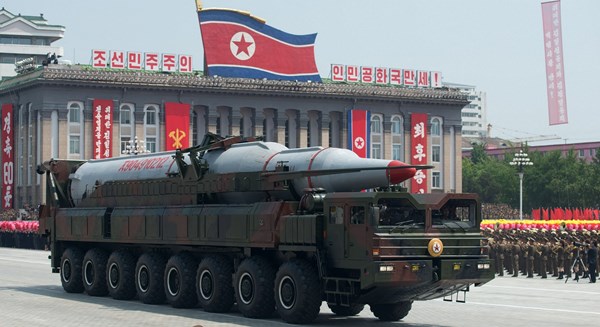North Korea threatens U.S. with preemptive strike
North Korea has issued a series of statements threatening the United States and its allies in the region, primarily South Korea, with a preemptive strike in the case, as Pyongyang said, of continuing American "provocations."
In an interview with the "Associated Press" in Pyongyang, Deputy Foreign Minister of North Korea Han Song-Ryol said that his country is "completely ready to cope" with any threat from the U.S., and added: "If the U.S. comes with reckless military maneuvers, we will confront it with a pre-emptive strike. We’ve got a powerful nuclear deterrent already, and we certainly will not keep our arms crossed in the face of a U.S. pre-emptive strike. "
He said that the policy of the current U.S. administration regarding his country had become "more vicious and aggressive" than under the previous administration, and added, referring to the U.S.: "We are ready to go to war if they choose."
The General Staff of the Korean People's Army also said "all the brigandish provocative moves of the U.S. in the political, economic and military fields pursuant to its hostile policy will thoroughly be foiled through the toughest counteraction of our army and people.” As noted in a statement by a spokesman for the General Staff, these "toughest counteractions against the U.S. and its vassal forces will be taken in such a merciless manner as not to allow the aggressors to survive.”
Pyongyang said that such strikes could be inflicted on U.S. bases in South Korea, at the residence of the South Korean president in Seoul, and on the U.S. aircraft carrier Carl Vinson, which is currently moving toward the Korean coast.
The statements were made on Saturday, on the eve of "Sun Day" - in North Korea, the official date of the birthday of the North Korean founder Kim Il Sung, which is one of the main public holidays.
The day before, U.S. President Donald Trump, as Supreme Commander of the U.S. Armed Forces, sent an aircraft carrier group led by the U.S. Navy carrier Carl Vinson to the Korean Peninsula; it is believed to be an attempt to send a signal North Korea about its ambitions to develop nuclear weapons and ballistic missiles in defiance of UN Security Council resolutions. In response, Pyongyang has already threatened a nuclear attack in response to possible aggression from the U.S.
